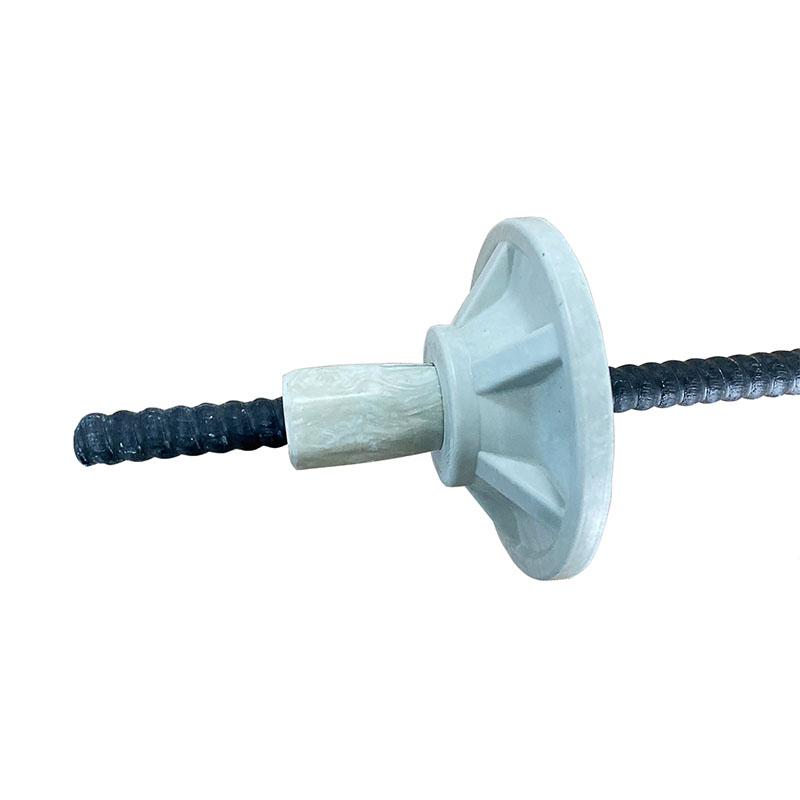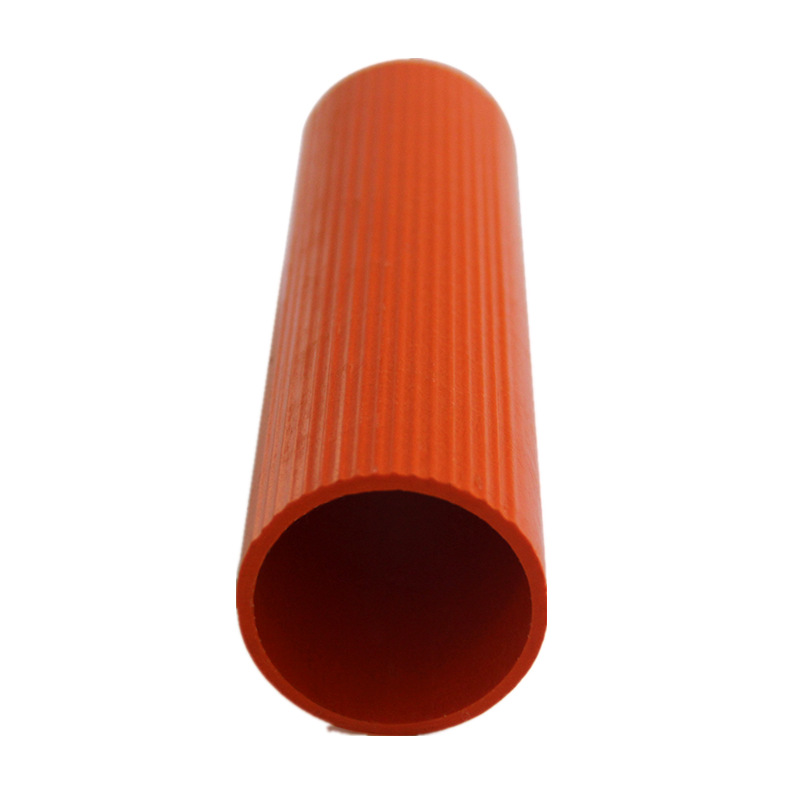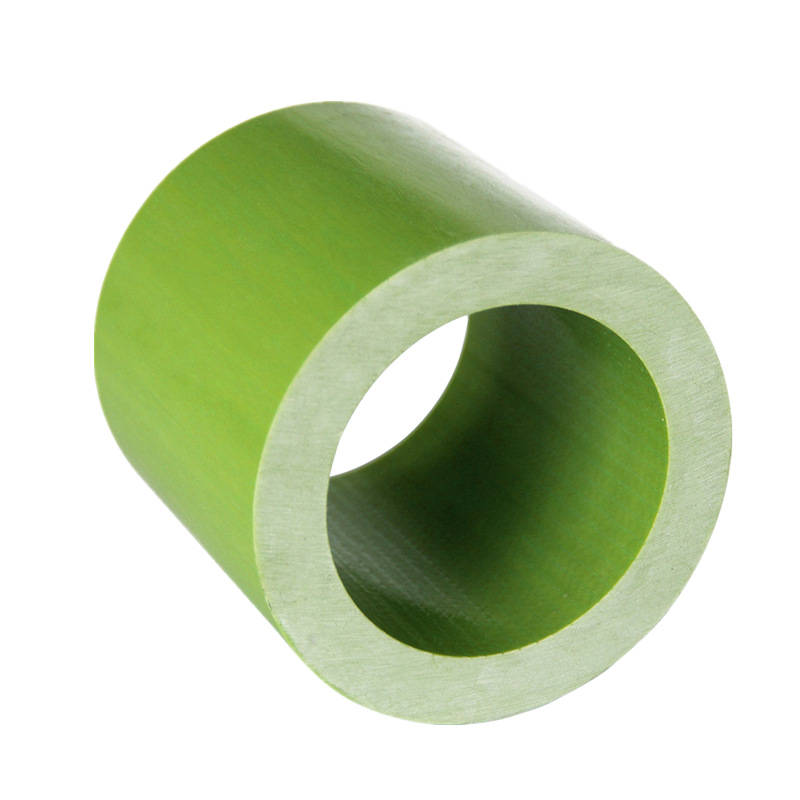Introduction
Glass Fiber Reinforced Polymer (GFRP) water stop screws are increasingly gaining attention in the construction industry due to their superior properties over traditional materials. These innovative components are essential in ensuring watertight structures, especially in environments where corrosion resistance and durability are paramount. This article delves deep into the properties of GFRP Water Stop Screw, exploring their composition, mechanical properties, and the advantages they offer in various construction applications.
Composition and Manufacturing of GFRP Water Stop Screws
GFRP water stop screws are composed of high-strength glass fibers embedded in a polymer matrix. The glass fibers provide the mechanical strength, while the polymer matrix protects the fibers and distributes loads. The manufacturing process typically involves pultrusion, where continuous glass fibers are pulled through a resin bath and then shaped and cured in a heated die. This results in a product with a high strength-to-weight ratio and exceptional durability.
Materials Used
The primary materials in GFRP water stop screws include E-glass fibers and resins such as epoxy, vinyl ester, or polyester. E-glass fibers are chosen for their high tensile strength and corrosion resistance. The type of resin used can affect the thermal properties and chemical resistance of the final product. Additives and fillers may also be included to enhance specific properties like UV resistance or flame retardancy.
Mechanical Properties
GFRP water stop screws exhibit excellent mechanical properties that make them suitable for demanding applications.
Tensile Strength
The tensile strength of GFRP screws can reach up to 1,000 MPa, significantly higher than that of traditional steel screws. This high tensile strength allows for the use of GFRP screws in applications where high load-bearing capacity is required.
Corrosion Resistance
One of the most significant advantages of GFRP water stop screws is their exceptional resistance to corrosion. Unlike steel, GFRP does not rust or corrode when exposed to moisture or chemicals, making it ideal for use in harsh environments such as marine or industrial settings.
Thermal and Electrical Insulation Properties
GFRP materials are excellent thermal and electrical insulators. This property is crucial in applications where conductivity could lead to energy loss or pose a safety risk.
Low Thermal Conductivity
With low thermal conductivity, GFRP water stop screws help in maintaining energy efficiency within structures by reducing heat transfer. This is especially beneficial in building envelopes where thermal bridging can be a concern.
Electrical Insulation
The electrical insulating properties of GFRP prevent galvanic corrosion that can occur when dissimilar metals are in contact. This makes GFRP screws suitable for use in conjunction with various materials without the risk of accelerating corrosion.
Advantages Over Traditional Materials
GFRP water stop screws offer several advantages over traditional steel screws and other fastening systems.
Lightweight
GFRP screws are about one-fourth the weight of steel screws. This reduction in weight can lead to easier handling and reduced transportation costs, as well as decreased structural dead loads.
Magnetic Transparency
GFRP materials are non-magnetic, making them suitable for use in applications where magnetic interference must be minimized, such as in hospitals or laboratories with sensitive equipment.
Applications of GFRP Water Stop Screws
The unique properties of GFRP water stop screws make them suitable for a wide range of applications in the construction industry.
Waterproofing Structures
In structures where waterproofing is critical, such as basements, tunnels, and dams, GFRP water stop screws provide reliable sealing and long-term durability. Their resistance to corrosion ensures that the waterproofing system remains intact over the structure's lifespan.
Marine and Coastal Construction
GFRP screws are ideal for marine environments due to their corrosion resistance. They are used in docks, piers, and seawalls where exposure to saltwater can rapidly degrade traditional materials.
Case Studies and Performance Data
Several studies have highlighted the performance of GFRP water stop screws in real-world applications. For instance, a bridge construction project in coastal Australia utilized GFRP screws to mitigate corrosion issues experienced with previous steel components.
Long-Term Durability
Research indicates that GFRP screws maintain structural integrity over extended periods, even in aggressive environments. Accelerated aging tests suggest a lifespan exceeding 75 years under normal conditions.
Load-Bearing Capacity
Field tests have demonstrated that GFRP water stop screws can handle substantial loads, making them suitable for heavy construction applications. Their high tensile strength contributes to overall structural performance.
Installation and Handling Considerations
Proper installation is crucial to maximize the benefits of GFRP water stop screws.
Drilling and Cutting
GFRP materials require specific tools for drilling and cutting to prevent fraying and ensure clean edges. Diamond-coated blades and carbide-tipped drill bits are recommended.
Safety Precautions
When handling GFRP components, it's important to wear appropriate personal protective equipment (PPE) to avoid skin irritation from fiberglass dust. Proper ventilation is also essential during cutting and drilling operations.
Environmental Impact and Sustainability
GFRP water stop screws contribute to sustainable construction practices.
Longevity and Lifecycle
The extended lifespan of GFRP screws reduces the need for frequent replacements, lowering the environmental burden associated with manufacturing and transportation of new materials.
Recyclability
Advancements in recycling technologies are making it possible to reclaim fibers from GFRP products, contributing to circular economy principles. While recycling options are currently limited, ongoing research is focused on improving these processes.
Comparative Analysis with Other Materials
Understanding how GFRP water stop screws stack up against other materials helps in making informed decisions.
GFRP vs. Steel
While steel has been the traditional choice for screws and fasteners, GFRP offers superior corrosion resistance and a higher strength-to-weight ratio. However, steel may still be preferred in applications where extreme high-temperature resistance is required.
GFRP vs. Other Polymers
Compared to other polymer-based screws, GFRP provides enhanced mechanical properties due to the reinforcement provided by glass fibers. This makes GFRP more suitable for structural applications.
Economic Considerations
Cost is a critical factor in material selection for construction projects.
Initial Investment
GFRP water stop screws may have a higher upfront cost compared to traditional steel screws. However, this initial investment can be offset by the reduced maintenance and replacement costs over the structure's lifespan.
Lifecycle Cost Savings
The corrosion resistance and durability of GFRP screws contribute to significant cost savings over time. Fewer replacements and repairs lead to lower operational costs, making GFRP a cost-effective solution in the long run.
Future Developments and Innovations
The field of composite materials is continuously evolving, with ongoing research aimed at enhancing the properties of GFRP products.
Hybrid Composites
Researchers are exploring hybrid composites that combine glass fibers with other materials like carbon fibers to achieve specific performance characteristics. This could lead to GFRP screws with even higher strength or improved thermal properties.
Enhanced Resin Systems
Advancements in resin technology, such as the development of bio-based or self-healing resins, could further improve the environmental sustainability and durability of GFRP water stop screws.
Standards and Certifications
Compliance with industry standards ensures that GFRP water stop screws meet the required performance criteria.
International Standards
Organizations such as ASTM International and ISO have developed standards governing the properties and testing methods for GFRP materials. Adherence to these standards is crucial for the acceptance and use of GFRP screws in construction projects.
Quality Assurance
Manufacturers must implement rigorous quality control processes to ensure the consistency and reliability of GFRP water stop screws. Certification from recognized bodies provides confidence to engineers and builders in the material's performance.
Challenges and Limitations
Despite their many advantages, GFRP water stop screws also present certain challenges.
Temperature Sensitivity
GFRP materials can experience a decrease in mechanical properties at elevated temperatures. This limits their use in environments where high temperatures are sustained, and designers must account for this in their specifications.
Creep Behavior
Under constant load, GFRP screws may exhibit creep, leading to gradual deformation over time. This behavior must be considered, especially in applications where sustained loads are significant.
Conclusion
GFRP water stop screws represent a significant advancement in construction materials, offering superior corrosion resistance, high tensile strength, and durability. Their unique properties make them an excellent choice for applications requiring reliable waterproofing and structural integrity. While challenges exist, ongoing research and technological improvements continue to enhance their performance and broaden their applicability. As the construction industry moves towards more sustainable and durable solutions, GFRP Water Stop Screw stands out as a material poised to meet the demands of modern engineering.



























